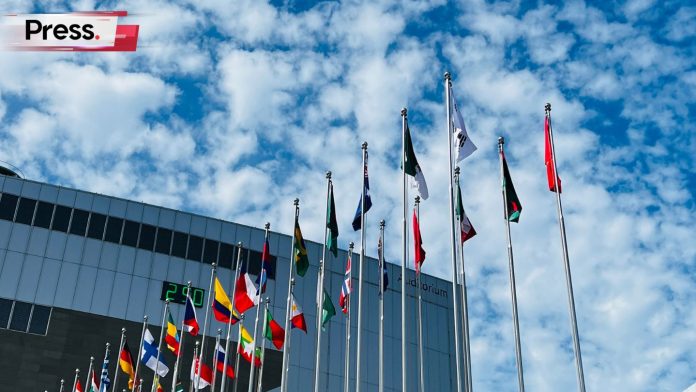Key Takeaways
- The ASEAN Summit 2025 in Malaysia focuses on digital transformation, sustainability, and SME empowerment across Southeast Asia.
- Accounting innovation from cloud software to AI analytics helps SMEs boost transparency, efficiency, and decision-making.
- Cross-border trade becomes easier with unified financial reporting and e-invoicing standards across ASEAN markets.
- Governments are introducing grants, tax incentives, and training programs to accelerate SME digitalization.
- Integrating digital accounting and ESG reporting strengthens business credibility and supports sustainable, long-term growth.
Table of Contents
ToggleThe ASEAN Summit is the annual meeting of leaders from the Association of Southeast Asian Nations to advance regional cooperation, economic integration, and shared policy goals. In 2025, Malaysia hosts and chairs, with a strong focus on the digital economy (including the Digital Economy Framework Agreement, DEFA), sustainability, and SME support.
For SMEs, the Summit signals growing policy alignment from trade facilitation and digitalisation to sustainable finance. In practice, that means progress toward cross-border interoperability (payments, e-invoicing, data flows), even as standards and systems remain jurisdiction-specific. Malaysia’s MyInvois e-invoicing is rolling out in phases through 2026, a step that supports regional interoperability while staying locally administered.
Why the 2025 ASEAN Summit Matters to Malaysia’s SMEs
Malaysia’s SME sector contributes a large share of national GDP and is central to ASEAN’s digital growth. Under Malaysia’s 2025 chairmanship, three themes stand out for SMEs:
- Digital economy enablement for SMEs (tools, connectivity, and adoption support).
- Financial transparency and comparability to strengthen regional competitiveness.
- Sustainability (green and responsible practices) to attract ESG-minded capital.
These priorities underline that the future of business in ASEAN depends on innovation and on the ability to measure, report, and scale transparently areas where modern accounting takes centre stage.
The New Face of Accounting Innovation in ASEAN
Accounting is no longer just about ledgers and audits. It’s becoming a strategic enabler of digital growth.
Here’s how innovation is reshaping the accounting landscape for SMEs in 2025:
a. Cloud Accounting Adoption
Cloud platforms like Xero, QuickBooks, and Financio enable real-time data access, reducing manual errors and improving decision-making speed. SMEs gain visibility into cash flow, automate reporting, and stay compliant with evolving tax regulations across ASEAN.
b. Integration with E-Invoicing and Digital Payments
Malaysia’s mandatory e-invoicing rollout aligns with the region’s push for interoperability. When SMEs integrate accounting software with digital payment gateways or BNPL systems, transaction data syncs automatically, improving efficiency and traceability.
c. AI-Driven Financial Insights
AI tools now analyze expenses, forecast sales, and detect anomalies in real time. This allows SMEs to manage working capital efficiently and prepare better for funding or cross-border expansion.
d. Sustainability and ESG Reporting
As investors demand transparency, SMEs are adopting ESG-linked accounting practices. Digital tools simplify sustainability reporting — helping businesses align with ASEAN’s 2025 sustainability agenda.
Note: Many ASEAN markets are IFRS/IFRS-based, but reporting remains country-specific. Software helps produce compliant outputs for each jurisdiction while maintaining a single source of truth.
Cross-Border Growth and Financial Alignment
One of the Summit’s main objectives is stronger economic connectivity. Accounting plays a key role:
- Aligned (not unified) reporting makes it easier to operate across borders while meeting local rules.
- Interoperable digital payments/e-invoicing support faster, more secure cross-border transactions.
- Trusted data sharing improves regulatory checks and reduces friction.
For Malaysian SMEs, this means less admin drag and faster expansion into Indonesia, Thailand, Vietnam, or the Philippines.
Funding, Incentives, and Policy Support
Across ASEAN, governments are introducing targeted incentives to speed up digital accounting adoption:
- Malaysia: MDEC/SME Corp digitalisation programmes supporting software and integration.
- Singapore: EnterpriseSG Productivity Solutions Grant (PSG) for approved solutions.
- Thailand / Indonesia: Tax deductions or allowances for digitalisation and training (programme-specific).
Aligning early with these programmes gives SMEs an edge in efficiency and compliance readiness.
The Human Side: Upskilling and Collaboration
Technology alone isn’t enough. The ASEAN Summit 2025 emphasized capacity building training accountants, finance managers, and SME owners to understand data analytics, cybersecurity, and compliance automation.
Collaboration between fintech companies, accounting firms, and SMEs is key to unlocking long-term digital transformation.
Challenges Ahead
Progress is real, but a few hurdles remain for SMEs operating across ASEAN:
- Uneven digital infrastructure: speeds, costs, and reliability differ by market.
- Data privacy & compliance differences: rules vary (storage, consent, cross-border flows).
- Fragmented e-invoicing/payment rails: national systems first; integration effort needed.
- Skills gaps: accounting, data, and cybersecurity capabilities are inconsistent.
- Change resistance: legacy processes and tools slow adoption.
ASEAN’s roadmap emphasises interoperability and capacity-building rather than one-size-fits-all standards, helping members move forward together.
What SMEs can do now
- Standardise on cloud accounting + API-friendly tools for easier country add-ons.
- Build a data & compliance checklist per market (privacy, tax, invoicing).
- Prioritise training (finance + ops) on e-invoicing, analytics, and security.
- Start with one cross-border lane, document the playbook, then scale.
The Road Ahead: From Compliance to Competitiveness
By 2026 and beyond, accounting will no longer be viewed merely as a compliance necessity but as a strategic growth driver.
When integrated with AI, automation, and fintech tools, accounting becomes a powerful asset for:
- Smarter business planning
- Better funding access
- Transparent cross-border collaboration
The ASEAN Summit’s direction ensures that SMEs equipped with digital financial systems will lead the region’s innovation wave.
Conclusion: Turning Policy into Progress
The 2025 ASEAN Summit underscores one truth, the future of business growth lies at the intersection of technology, transparency, and collaboration. For Malaysian SMEs, digital accounting is more than a back-office upgrade, it’s a foundation for sustainable expansion across ASEAN.
To stand out in the evolving digital landscape, businesses must communicate their innovation clearly, not only through operations but also through strong brand visibility and strategic outreach.
Partner with Press, a leading digital PR agency in Malaysia, to help your brand amplify thought leadership, strengthen investor confidence, and showcase your role in ASEAN’s digital transformation.
Frequently Asked Questions About Asean Summit and How It Affects SMEs Accounting Innovation
What is the ASEAN Summit 2025?
A key regional meeting hosted and chaired by Malaysia where Southeast Asian leaders advance cooperation in trade, the digital economy (DEFA), sustainability, and SME support.
Why is Accounting Innovation Important for ASEAN SMEs?
Modern tools (cloud, automation, AI) reduce errors and speed decisions, giving SMEs real-time visibility and clean audit trails across multiple markets.
How Does the ASEAN Summit 2025 Support SME Digitalization?
It pushes policy alignment and interoperability (such as, digital trade, e-invoicing readiness) so SMEs can operate regionally, while national systems like MyInvois in Malaysia continue to govern local compliance.
What Accounting Technologies Are Trending in ASEAN?
Cloud accounting, AI-powered analytics, integrated payment/e-invoicing tools, and (in pilot contexts) blockchain for provenance and transparency.
How Can Malaysian SMEs Benefit From ASEAN Collaboration?
By aligning with regional standards and local rules: tap grants (for example, MDEC/SME Corp, PSG), build partnerships, and expand into neighbouring markets with compliant reporting.
How Can Businesses Start Their Accounting Innovation Journey?
Audit current systems, upgrade to cloud accounting integrated with e-invoicing and payments, and upskill teams. For market visibility, partner with Press Digital to communicate your transformation and attract investors and customers.


